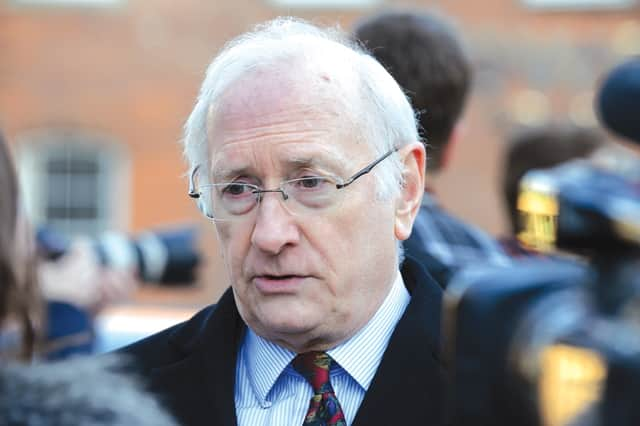"Be vigilant but don’t let terror threat ruin your life" - chief's message


That was the advice from policing boss Dr Alan Billings as he spoke at a summit about terrorism.
The South Yorkshire police and crime commissioner said people should be cautious about the threat but not let it ruin their lives.
Advertisement
Hide AdAdvertisement
Hide AdThe event at Barnsley Town Hall highlighted what people should look out for and the nature of the terrorism threat but attendees were told that there was no specific threat to South Yorkshire.
Anti-terrorism work was “beginning to take up a lot more of the money” given to South Yorkshire Police “for very obvious reasons”, Dr Billings said.
He added: “We simply don’t know when and where things will happen but we can be better prepared for incidents.”
While Dr Billings said seeing armed police officers on the street, he conceded it would worry others.
Advertisement
Hide AdAdvertisement
Hide AdHe said: “That is always a difficult call, whether you are reassuring people or just frightening them.
“The message is quite a simple one. We must all be alert but we must not be alarmed. There is no point in frightening ourselves to death.”
The Barnsley event — hosted by counter terrorism security advisers Mick Peel and Peter Manewell — identified that the terrorism threat comes from a variety of potential sources, rather than just Islamist extremists.
Irish terrorism, extreme right-wingers and so-called “lone actors” with their individual agendas have all committed or attempted to carry out atrocities and the event highlighted the work done to stop attacks before they can happen.
Advertisement
Hide AdAdvertisement
Hide AdThe public was urged to report anything suspicious, whether it be people hanging around a station or building, taking pictures in unusual situations, asking about a building’s security, or even individuals changing their behaviour significantly.
The internet has proved to be a ripe recruiting ground for terrorists with jihadi websites among those inciting atrocities.
The so-called Dark Web of the internet, where criminal activities take place, is also a place where terrorists buy equipment, work out plots, and share their insane ideas, the summit was told.
An online magazine, called Inspire, was highlighted at the counter-terrorism event as a publication which had inspired terrorists.
Advertisement
Hide AdAdvertisement
Hide AdMr Peel warned people against taking a look at its contents on their own computers at home out of curiousity as it would be picked up by the security forces, insisting: “You will get a knock on your door if you do.”
Mr Manewell added: “They probably won’t event knock.”
Anyone finding a suspicious object should walk away, clear the area, put in place a cordon of 100 metres for a briefcase-sized object or 200 metres for a suitcase or car-sized item, and then call the police on 999.
They should never use electronic equipment — including mobile phones — near the object as the electrical signals could trigger the device, Mr Peel said.
Anyone caught up in a shooting, should run away from the threat, hide in a secure place and stay quiet if unable to escape.
Advertisement
Hide AdAdvertisement
Hide AdEmployers were encouraged to plan escape routes for such a scenario.
Mr Manewell said that vigilance by the public was very important.
He said: “If you see something that’s not right, tell somebody.”
If you have any suspicions call the anti-terrorist hotline 0800 789 321
Advertisement
Hide AdAdvertisement
Hide AdMore information is available at the National Counter Terrorism Security Office website at https://www.gov.uk/government/organisations/national-counter-terrorism-security-office
Guidance for what to do if an attack happens in a crowded place is available at https://www.gov.uk/government/uploads/system/uploads/attachment_data/file/619411/170614_crowded-places-guidance_v1.pdf